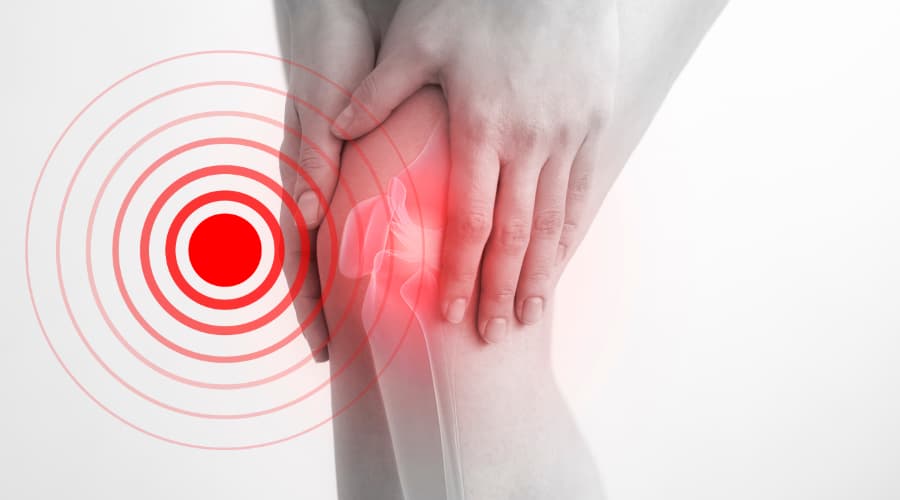Erectile dysfunction (ED) is a common condition among men in the UK, with estimates suggesting that up to half of all men between the ages of 40 and 70 will experience some degree of ED at some point in their lives. ED refers to the inability to achieve or maintain an erection that is sufficient for sexual activity, and it can have a significant impact on a man’s self-esteem, relationships, and overall quality of life.
Testosterone replacement therapy (TRT) is a potential treatment option for men with ED who have low testosterone levels. TRT involves synthetic testosterone to raise a man’s testosterone levels to within the normal range, which may help improve sexual function and libido.
The primary purpose of this article is to explain the link between testosterone and ED, including how low testosterone levels can contribute to ED and how TRT may help improve sexual function in some men. We’ll also discuss who may be a good candidate for TRT, how it is administered, and some potential benefits and risks of treatment. By the end of the article, readers should better understand how testosterone levels impact sexual function and whether TRT may be a suitable treatment option for them.
What is Testosterone?
Testosterone is a hormone that is primarily produced in the testicles of men, although small amounts are also produced in women’s ovaries. Testosterone plays a crucial role in male health, including the development of male sex organs, the growth of muscle and bone mass, and the maintenance of sex drive and energy levels.
Testosterone levels naturally decline with age, typically starting around the age of 30. By the time men reach their 60s and 70s, their testosterone levels may be significantly lower than in their younger years. This decline in testosterone production is a normal part of the ageing process known as andropause or male menopause.
Men with low testosterone levels may experience fatigue, decreased libido, erectile dysfunction, and decreased muscle mass and bone density. However, some men may experience a more significant decline in testosterone levels than is typical for their age. This may be due to various factors, including chronic illness, obesity, injury to the testicles, or certain medications.
What is Erectile Dysfunction?
Erectile dysfunction (ED) is a condition where a man is unable to achieve or maintain an erection that is sufficient for sexual intercourse. Various factors, including physical, psychological, and lifestyle factors, can cause ED.
Physical causes of ED may include conditions that affect blood flow to the penis, such as heart disease, high blood pressure, diabetes, and obesity. Other physical causes may include nerve damage, hormonal imbalances, and side effects of certain medications.
Psychological factors can also contribute to ED, including anxiety, depression, stress, and relationship issues. Lifestyle factors, such as smoking, alcohol abuse, and a lack of exercise, can also increase the risk of ED.
ED can significantly impact a man’s sexual health and quality of life. Men with ED may experience inadequacy, shame, and low self-esteem. ED can also lead to relationship problems and decreased sexual satisfaction for both partners. Additionally, ED may indicate an underlying health condition, such as heart disease, that requires medical attention.
The Link Between Testosterone and Erectile Dysfunction
Testosterone plays a vital role in maintaining sexual function in men. Testosterone is involved in developing and maintaining the male sex organs and helps regulate libido or sexual desire. Additionally, testosterone is involved in achieving and maintaining an erection.
Low testosterone levels can contribute to ED by reducing libido and impairing the ability to achieve and maintain an erection. Men with low testosterone levels may also experience a decrease in muscle mass and bone density, which can affect overall health and well-being.
TRT is a potential treatment option for men with ED who have low testosterone levels. TRT involves synthetic testosterone to raise a man’s testosterone levels to within the normal range, which may help improve sexual function and libido.
There is some evidence to support the use of TRT for ED. A study published in the Journal of Sexual Medicine found that men with low testosterone levels who received TRT experienced significant improvements in erectile function compared to men who received a placebo. However, the evidence for TRT as a treatment for ED is not yet conclusive, and more research is needed to understand the potential benefits and risks of treatment fully.
Some potential benefits of TRT for ED may include improved sexual function, increased energy and mood, and overall quality of life. However, TRT is not without risks, and some potential side effects may include acne, hair loss, prostate enlargement, and an increased risk of cardiovascular disease.
Men considering TRT for ED must speak with their doctor and carefully weigh the treatment’s potential benefits and risks. Additionally, a qualified healthcare provider should only prescribe and monitor TRT to ensure it is used safely and effectively.
Who is a Good Candidate for Testosterone Replacement Therapy?
Men with ED who have low testosterone levels may benefit from TRT, as it can help improve sexual function and libido. TRT may also be an option for men who have not responded to other treatments for ED, such as lifestyle changes or medication.
However, not all men with ED are good candidates for TRT. Factors influencing a man’s suitability for TRT include his age, health status, and other medications he may be taking.
TRT is typically recommended for men with low testosterone levels, as measured by a blood test. A man with a testosterone level below 300 ng/dL may be a candidate for TRT. However, the decision to prescribe TRT should be based on a comprehensive evaluation of the man’s symptoms, health status, and medical history.
Age can also be a factor in determining a man’s suitability for TRT. TRT is generally not recommended for men under 30, as testosterone levels naturally fluctuate during this time. Additionally, older men may be at higher risk of specific side effects of TRT, such as prostate enlargement and cardiovascular disease.
Men with certain health conditions, such as prostate or breast cancer, may not be good candidates for TRT. Additionally, men taking certain medications, such as blood thinners or corticosteroids, may be unable to take TRT safely. Men need to discuss their medical history and medications with their doctor before considering TRT for ED.
How is Testosterone Replacement Therapy Administered?
Several different forms of TRT can be used to raise a man’s testosterone levels. These include injections, gels, patches, and pellets.
Injections: Testosterone injections are typically administered every 2-4 weeks by a healthcare provider or the patient at home. One of the advantages of injections is that they provide a consistent dose of testosterone over a more extended period. However, injections can be painful, and some men may experience peaks and valleys in testosterone levels between injections.
Gels: Testosterone gels are applied topically to the skin, usually once daily. Gels can be convenient for men who prefer not to receive injections and allow for more stable testosterone levels throughout the day. However, gels can be messy and may transfer to others if the skin is not covered.
Patches: Testosterone patches are applied to the skin and must be changed daily. Patches can provide a more stable dose of testosterone than injections, and they are less messy than gels. However, some men may experience skin irritation or an allergic reaction to the patch.
Pellets: Testosterone pellets are implanted under the skin every 3-6 months. Shots can provide a steady dose of testosterone over an extended period, which may benefit some men. However, implanting pellets can be more invasive than other forms of TRT.
The type of TRT prescribed will depend on various factors, including the man’s preference, medical history, and lifestyle. Each form of TRT has pros and cons, and the decision should be based on a comprehensive evaluation of the man’s needs and preferences.
Regardless of the form of TRT prescribed, men, need regular monitoring to ensure that their testosterone levels remain within the normal range. Blood tests are typically used to measure testosterone levels, and dosage adjustments may be made based on the results of these tests. Additionally, men on TRT should be monitored for potential side effects and discuss any concerns or questions with their healthcare provider.
The Benefits and Risks of Testosterone Replacement Therapy
TRT has the potential to offer several benefits to men with ED and low testosterone levels, including improved sexual function, increased energy, and improved mood. TRT can also help improve bone density and muscle mass, which may benefit overall health and well-being.
However, TRT is not without risks, and some potential side effects may include acne, hair loss, prostate enlargement, and an increased risk of cardiovascular disease. Additionally, there may be a risk of developing blood clots, and men with a history of prostate cancer may not be good candidates for TRT.
Doctors typically monitor men on TRT to ensure they receive the appropriate dose and that their health is not compromised. This normally involves regular blood tests to monitor testosterone levels, as well as monitoring for any potential side effects or complications. Dosage adjustments may be made based on these results, and men on TRT should report any changes in symptoms or side effects to their healthcare provider.
FAQs
What is testosterone replacement therapy (TRT)?
TRT is a medical treatment that uses synthetic testosterone to raise a man’s testosterone levels to within the normal range. TRT may be recommended for men with low testosterone levels experiencing symptoms such as fatigue, decreased libido, and erectile dysfunction.
What are the benefits of TRT for erectile dysfunction?
TRT may help improve sexual function and libido in men with ED who have low testosterone levels. Additionally, TRT may help improve energy levels, mood, and overall quality of life.
What are the potential risks and side effects of TRT?
Some potential risks and side effects of TRT may include acne, hair loss, prostate enlargement, and an increased risk of cardiovascular disease. Additionally, TRT may be associated with an increased risk of blood clots, and men with a history of prostate cancer may not be good candidates for TRT.
How is TRT administered?
TRT may be administered in several forms, including injections, gels, patches, and pellets. The type of TRT prescribed will depend on various factors, including the man’s preference, medical history, and lifestyle.
How is TRT monitored?
Men on TRT typically receive regular monitoring to ensure that their testosterone levels remain within the normal range and that they are not experiencing any adverse side effects. This generally involves standard blood tests to measure testosterone levels and monitor for potential side effects or complications. Dosage adjustments may be made based on these results.
Is TRT safe for all men with ED?
TRT is unsafe for all men with ED, and the decision to prescribe TRT should be based on a comprehensive evaluation of the man’s symptoms, health status, and medical history. Factors influencing a man’s suitability for TRT include his age, health status, and other medications he may be taking. Men need to discuss their medical history and medications with their doctor before considering TRT for ED.
In Summary
Men need to understand the link between testosterone and ED and the potential benefits and risks of TRT. Men experiencing low testosterone symptoms or ED should speak with their doctor to determine if TRT is a suitable treatment option.
Vale Health Clinic offers TRT and other men’s health services. Remember, treatment for ED or low testosterone levels can positively impact your overall health and quality of life. Don’t suffer in silence – speak with your healthcare provider today.
Related Articles
- Testosterone Replacement Therapy (TRT) – What You Need To Know
- The Potential of Testosterone Replacement Therapy: Benefits, Risks, and Myths
- The Connection Between Low Testosterone and Impotence: What You Need to Know
- P-Shot Treatment for Erectile Dysfunction
- The Science Behind P-Shot: How Does it Work?




